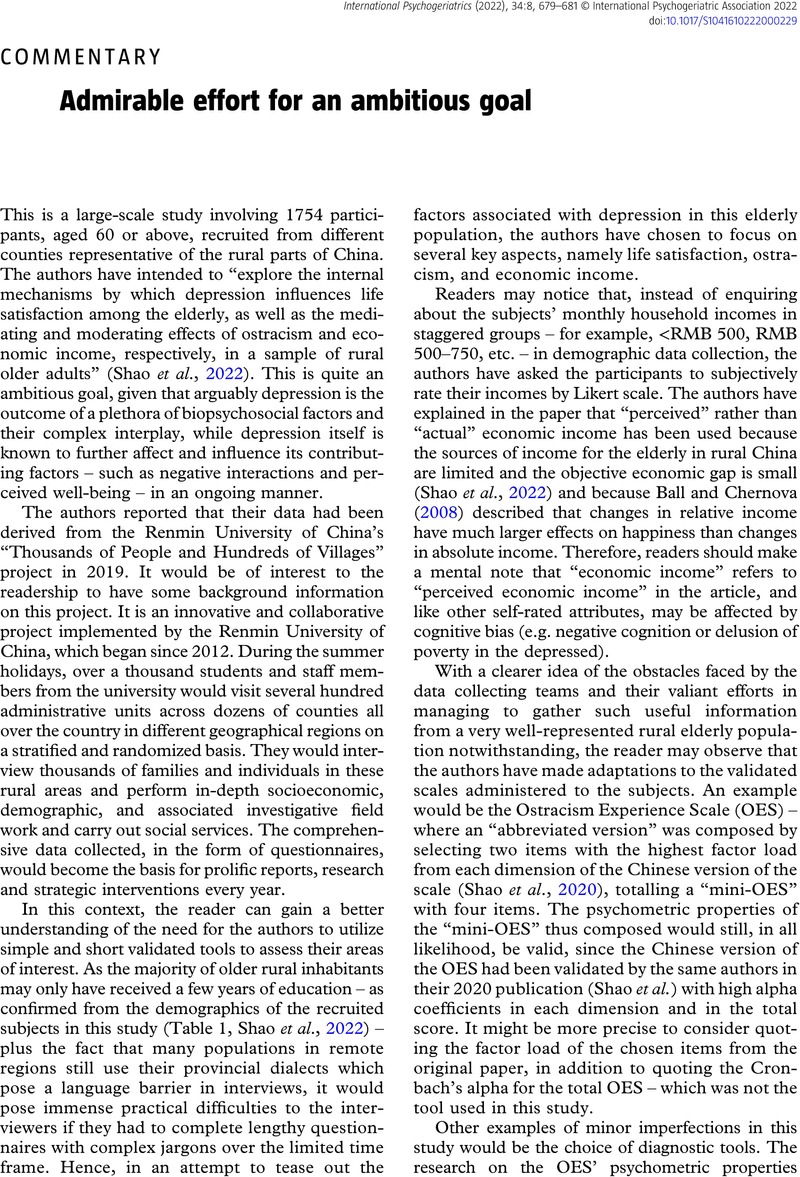No CrossRef data available.
Article contents
Admirable effort for an ambitious goal
Published online by Cambridge University Press: 04 March 2022
Abstract
An abstract is not available for this content so a preview has been provided. Please use the Get access link above for information on how to access this content.

- Type
- Commentary
- Information
- International Psychogeriatrics , Volume 34 , Special Issue 8: Issue Theme: Geriatric Mental Health among Chinese Older Adults , August 2022 , pp. 679 - 681
- Copyright
- © International Psychogeriatric Association 2022
References
Antony, M. M., Bieling, P. J., Cox, B. J., Enns, M. W. and Swinson, R. P. (1998). Psychometric properties of the 42-item and 21-item versions of the Depression Anxiety Stress Scales in clinical groups and a community sample. Psychological Assessment, 10, 176–181. DOI 10.1037/1040-3590.10.2.176.CrossRefGoogle Scholar
Ball, R. and Chernova, K. (2008). Absolute income, relative income, and happiness. Social Indicators Research, 88, 497–529. DOI 10.1007/s11205-007-9217-0.CrossRefGoogle Scholar
Carter-Sowell, A. R. (2010). Salting a wound, building a callous, or throwing in the towel? The measurement and effects of chronic ostracism experiences (PhD thesis). Purdue University.Google Scholar
Gong, X., Xie, X. Y., Xu, R. and Luo, Y. J. (2010). Psychometric properties of the Chinese versions of DASS-21 in Chinese college students. Chinese Journal of Clinical Psychology, 18, 443–446. DOI 10.16128/j.cnki.1005-3611.2010.04.020.Google Scholar
Hayes, A. F. (2013). Introduction to Mediation, Moderation, and Conditional Process Analysis: A Regression-Based Approach. New York: The Guilford Press.Google Scholar
Shao, L., Dong, Y., Feng, J. X. and Zhang, D. H. (2020). The effect of ostracism on subjective well-being for adults in China: the chain mediating role of social identification and control. Chinese Journal of Clinical Psychology, 28, 234–238. DOI 10.16128/j.cnki.1005-3611.2020.02.004.Google Scholar
Shao, L., Yu, G. and Zhang, D. (2022). The mechanisms underlying the negative effect of depression on life satisfaction among the elderly: the roles of ostracism and economic income. International Psychogeriatrics, 34, 715–724. DOI 10.1017/S1041610221001162.Google Scholar


